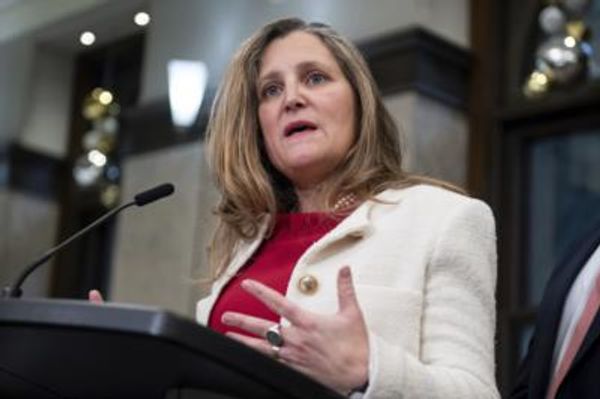Figures in a new report on child poverty in the North East making for alarming reading: 38% of children in the region are living in poverty, rising to almost half - 47% - in households with children under the age of five.
The gap in living standards for youngsters in the North East compared to the national average is at a 20-year high, while the region also has the highest proportion of looked after children in England (108 children per 10,000 children).
But these figures only point to the scale of the problem. For how poverty affects children - limiting their life chances, affecting physical and mental health - the report by the North East Child Poverty Commission also highlights heartbreaking individual stories of what it means to grow up poor.
Read more: North East child poverty gap with rest of UK reaches 20-year high
“The guilt and shame is part and parcel of everyday life,” one North East children’s charity reported. “It brings so much stress, which is a recipe for family breakdown.”
“Poverty feels like shame. It feels like failure,” a worker at a baby bank added. “It feels like mum guilt. It looks like wearing the wrong size shoes and hoping nobody notices. It’s wearing a dressing gown instead of a coat. It’s not fitting in. It’s a mum who told me yesterday, I can’t afford to replace his trousers right now. I know they’re too short and I just hope his dark socks hide the gap.”

There are other stories in the report that highlight the lengths parents are having to go, including cutting the feet off babygrows to make them last longer longer, seeking baby milk at food banks and washing in cold water to avoid putting the heating on. A health visitor in one part of the region reported seeing a three-month old baby in a cot with a duvet cover - a risk of sudden infant death syndrome; when this was raised with the child’s mother, she responded that she could not afford any heating and it was the only way of keeping her child warm.
The number of children in need is in turn is putting huge strains on organisations trying to help. One food bank reported a trebling of demand from families since the cost of living crisis began, while a baby bank had gone from one or two referrals a week to more than 60.
“People are trying to do what they can,” one advice service reported, “but they’re already scrimping back on everything possible, they’re already not using gas and electricity because they can’t afford it. There’s no other ‘thing’ that they can do, it’s just that they don’t have enough to live on, which is a systemic issue.”
There are cases too where struggling parents are clearly reluctant to ask for help for fear of social services or other official involvement in their lives. “The fear of accepting help is astronomical,” one children’s charity found.
The rise in child poverty has a number of causes, not least low pay. While average incomes rose 11% nationally from 2015 to 2020, they fell by 4% in the North East, leading to a massive 91% rise in in-work poverty in the region.
Economic inactivity has also played a role, including the 38% of children in the North East living in a household where someone has a disability (the joint highest levels in the UK). Single parent families, particularly those with young children, are much more likely to find it harder and the North East has the UK’s highest proportion of children in lone parent families.
The figures on child poverty, and the stories around them, can feel overwhelming, but as the Commission highlights, they are not inevitable. Poverty in the North East almost halved between
2000 and 2014 for children in families with young children, and the region’s rates of poverty have been around the national average for much of this century. Only in recent years has the North East become an outlier for the number of young people growing up poor.
The Commission recommends a range of policies that could start to address the problem, including changes to the benefit system, the provision of more affordable childcare and action to reduce the high cost of rented housing. It also calls for a range of actions to tackle in-work poverty, and says reducing the number of people who are in poverty despite having a job should be an explicit aim of future devolution deals and Government funding packages.
The Commission’s report concludes: “The vast shortfall between the cost of living measures announced to date by Government, and bills for household essentials which continue to rise, clearly threatens to have devastating consequences – both for those young families across the North East who already had absolutely nothing left to cut back on, and for the overstretched services currently supporting them.
“In the medium to longer-term, it is clear that we have to stop lurching from crisis to crisis if the Government is to deliver on its levelling up pledges to improve living standards and increase opportunities for children and young people in places like the North East. Giving every baby ‘the best start in life’ means getting the building blocks right. This will require a commitment from the new Prime Minister to take comprehensive, ambitious and joined-up action to reduce and then end child poverty as a central plank of levelling up.
“It will also require an understanding that, whilst we have a national social security system, its erosion over the last decade has had a disproportionate impact on North East families, both in and out of work – and that has been a leading driver of many of the inequalities the levelling up agenda seeks to tackle. Until this erosion – and the ongoing challenge of low paid work and lower household earnings in our region – are fundamentally addressed, the Government’s flagship policy will continue to be fatally undermined.”
READ MORE:
* 'We shouldn't have this level of child poverty in the UK'
* Charity backed to examine health and fitness levels in North East







